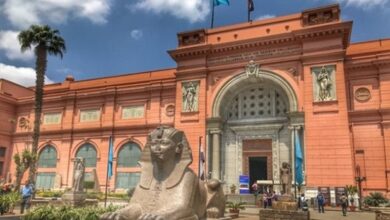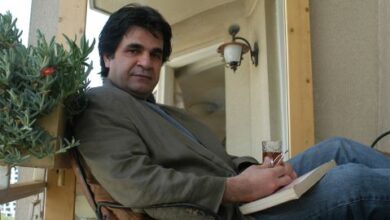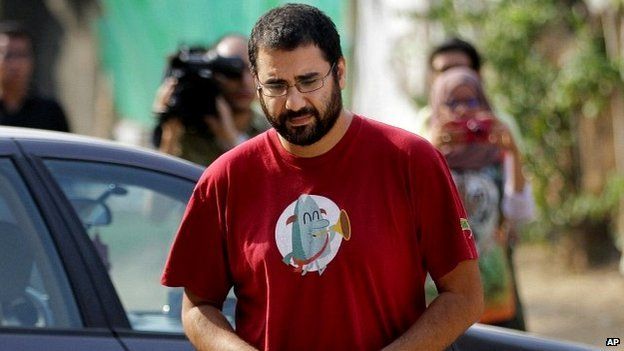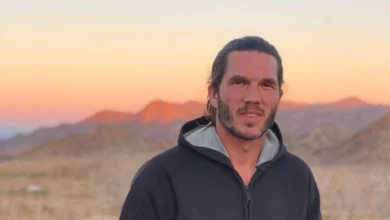A military representative was made to leave Tahrir Square on Saturday after being jeered during an unannounced visit.
Staff Brigadier General Tareq al-Mahdi, head of the National Media Council, arrived at the sit-in around 2 pm.
Protestor Al-Husseiny Mohamed told Al-Masry Al-Youm that Mahdi said he was in the square to visit a group of people on hunger strike.
“Some people I didn’t recognize attacked him and made him leave the square. They weren’t part of us. This isn’t Egyptian manners to do this to a guest,” Mohamed said.
Nazly Hussein, another protester, said Mahdi attempted to go to one tent amidst a large crowd some of whom were calling for him to leave the square.
One demonstrator criticized state media’s coverage of Friday’s protest in Tahrir, to which Mahdi responded by promising to cover the Tahrir sit-in without any fabrication.
Mahdi reportedly asked for a list of the names of individuals in military detention and said that he would announce their whereabouts within 48 hours on television. The general added that military trials “have jurisdiction and are not for revolutionaries or respectable people.”
Demonstrator Mina Nader said that Mahdi attempted to talk to fellow demonstrators from several stages in the square but that his voice was drowned out by chants of “the people want the removal of the marshal" (referring to Marshal Mohamed Hussein Tantawi, head of the ruling Supreme Council of the Armed Forces, or SCAF).
Nader said that Mahdi called the protestors chanting against him “traitors”, which inflamed the situation.
Protestor Alaa al-Herazy reported that Mahdi left when protestors asked him about the army officers who joined a protest in Tahrir Square on 8 April and were subsequently imprisoned. The officers protested conditions within the army and have been in detention after the protest was forcibly disrupted by the military.
Herazy was strongly critical of SCAF, calling for its replacement by a transitional presidential council.
He asked why there was “so much secrecy” surrounding army affairs, and in particular the military budget “when the Americans sell Egypt its arms”.
“America knows everything about the army. It’s my right as an Egyptian citizen to know as well,” Herazy said.
Egynews reported Mahdi as saying, “I came to you today on my own to talk to you about what is happening but I am sorry I came and I don’t know what else to do for you.”
MENA, the state-run news agency, reported that one hunger striker, Mohamed Mahmoud Fawzy, ended his hunger strike after Mahdi’s visit because “he felt great understanding from SCAF members of the revolutionaries’ demands and its appreciation of [revolutionaries’] patriotic spirit after the hunger strikers refused to accept assistance from foreign bodies…and refused the interference of any foreign country in domestic matters."
Fawzy's account and identity could not be verified by Al-Masry Al-Youm.
Roughly an hour after Mahdi’s visit to the square, protesters marched in the funeral of Mostafa Ahmed, a martyr who was shot in the head during 28 January’s Friday of Anger demonstrations and who died today.
A march to the Public Prosecution Office and from there to the state television building at Maspero followed the funeral service during which protestors called for the removal of the public prosecutor.
There have been repeated calls for the removal of Public Prosecutor Abdel Meguid Mahmoud who served during the regime of Hosni Mubarak, the former president, and who demonstrators allege is implicated in the slow pace of trials of regime figures and members of the police accused of killing protestors.
In Tahrir, the sit-in has continued since 8 July with demands to purge the Ministry of Interior, for the SCAF to relinquish powers to the interim cabinet, and to immediately and publicly prosecute the former regime's figures and policemen accused of killing protesters.




